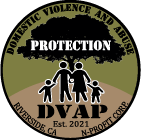Entering a new relationship can be an exciting and hopeful experience. However, it is essential to ensure that the dynamics of the relationship are healthy and fostering mutual respect. Recognizing early red flags is a critical step in identifying potentially harmful patterns before they escalate. Below, we explore common signs of controlling, manipulative, or abusive behavior, offering guidance on how to protect yourself and trust your instincts.
Subtle Signs of Controlling or Manipulative Behavior
At the start of a relationship, red flags may be subtle and easy to dismiss. Here are some initial warning signs to watch for:
Excessive Need for Control
Does your partner constantly want to know where you are and whom you are with? While some interest in your activities is natural, an obsessive need for control over every aspect of your life is a significant warning signal. For example, a partner may start with frequent check-ins that seem caring but escalate to demanding real-time updates or tracking your location.
Jealousy Masquerading as Love
A little jealousy is normal in any relationship, but when it becomes a recurring theme, it indicates insecurity or a desire for control. Imagine a scenario where your partner frequently questions your interactions with other people or becomes upset when you spend time with family or friends. This behavior can isolate you from your support network over time.
Gaslighting or Emotional Manipulation
Gaslighting involves making you doubt your perceptions and memories. A partner might say things like, “You’re overreacting,” or “That never happened,” when you bring up concerns. This tactic leaves you questioning your own instincts and can severely erode your confidence.
Pushing Boundaries Early On
Does your partner ignore your personal boundaries or pressure you into moving faster than you’re comfortable with? For instance, they might insist you share passwords to your devices or accounts under the guise of building trust, but this erodes your privacy.
Subtle Put-Downs
Be wary of seemingly innocent comments that belittle your abilities, looks, or achievements. They may be framed as jokes or constructive criticism, but over time, these remarks can chip away at your self-esteem.
Trusting Your Instincts
Your inner voice is your greatest ally. If a behavior feels off or makes you uncomfortable, trust that feeling. Survivors often say they ignored their gut instincts early on, only to realize later that those subtle unease moments were warning signs. Pay attention to patterns, even if each behavior alone seems insignificant.
Some questions to ask yourself include:
- Do I feel respected and valued in this relationship?
- Am I constantly justifying my partner’s behavior to myself or others?
- Do I feel free to speak openly without fear of how my partner might react?
If the answer to any of these questions is “no,” it might be time to re-evaluate your relationship dynamics.
How Early Signs Can Escalate
Early red flags often serve as precursors to more dangerous scenarios. What begins as frequent texts or minor jealousy can quickly evolve into more controlling behaviors, such as dictating how you dress, isolating you from friends and family, or even verbal or physical abuse. Abusive relationships often escalate gradually, making it harder for victims to identify what’s happening until they feel trapped.
For example, consider Sarah, a young woman who met her partner through mutual friends. At first, his constant texting seemed attentive. However, it progressed to him controlling who she could talk to and criticizing her clothing choices. Eventually, this turned into verbal outbursts and physical intimidation. Recognizing such patterns early on and seeking support can prevent these situations from worsening.
Seeking Help and Support
You are not alone, and you don’t have to face these challenges in isolation. If you’re concerned about your relationship or the safety of someone you know, speak to a trusted individual, such as a friend, family member, counselor, or community advocate. Open up about what you’re experiencing—being heard and validated can be incredibly empowering.
There are also professional resources available to support you. Domestic Violence and Abuse Protection, Inc. (DVAP) serves survivors in the Riverside, California region. We are committed to offering security and guidance to those navigating these challenges.
Remember, reaching out for help is not a sign of weakness but an act of strength and self-care. Taking that courageous first step could protect your safety and well-being.
Empowering Yourself
Empowerment begins with education and self-awareness. By learning to recognize the early signs of controlling or abusive behavior, you are taking proactive steps to protect yourself and others. Everyone deserves to feel safe and respected in their relationships. If you notice red flags, trust yourself, and act on those feelings without delay. Even small steps—like setting boundaries or confiding in someone you trust—can make a profound difference.
Are You Experiencing Domestic Violence or Abuse? DVAP Is Here To Help
Domestic Violence and Abuse Protection, Inc. is a non-profit organization committed to protecting the victims of domestic abuse. When restraining orders are not enough, we are there to provide the determined protection you deserve. We are located at 3900 Orange St., Riverside, CA. Call us at (951)-275-8301 (24 hours). Alternatively, you can email us at admin@dvapriverside.org.






